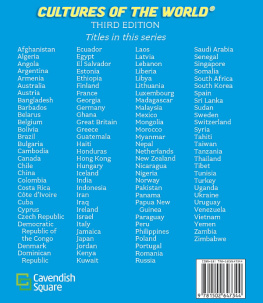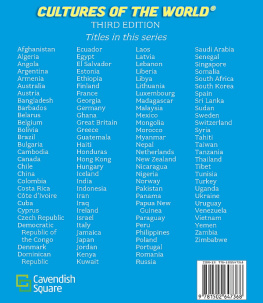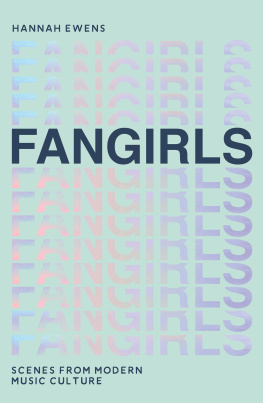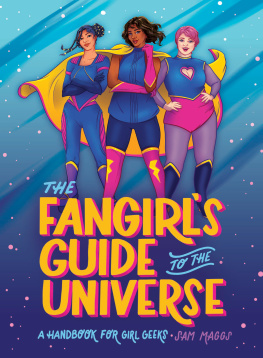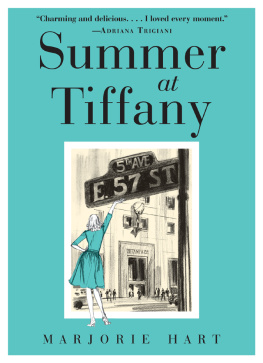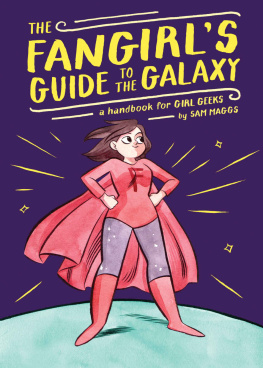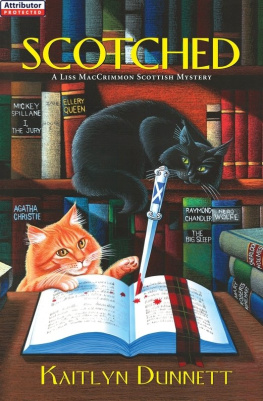Kaitlyn Tiffany - Everything I Need I Get From You: How Fangirls Created the Internet as We Know It
Here you can read online Kaitlyn Tiffany - Everything I Need I Get From You: How Fangirls Created the Internet as We Know It full text of the book (entire story) in english for free. Download pdf and epub, get meaning, cover and reviews about this ebook. year: 2022, publisher: FarrarStraus, genre: Detective and thriller. Description of the work, (preface) as well as reviews are available. Best literature library LitArk.com created for fans of good reading and offers a wide selection of genres:
Romance novel
Science fiction
Adventure
Detective
Science
History
Home and family
Prose
Art
Politics
Computer
Non-fiction
Religion
Business
Children
Humor
Choose a favorite category and find really read worthwhile books. Enjoy immersion in the world of imagination, feel the emotions of the characters or learn something new for yourself, make an fascinating discovery.

- Book:Everything I Need I Get From You: How Fangirls Created the Internet as We Know It
- Author:
- Publisher:FarrarStraus
- Genre:
- Year:2022
- Rating:4 / 5
- Favourites:Add to favourites
- Your mark:
- 80
- 1
- 2
- 3
- 4
- 5
Everything I Need I Get From You: How Fangirls Created the Internet as We Know It: summary, description and annotation
We offer to read an annotation, description, summary or preface (depends on what the author of the book "Everything I Need I Get From You: How Fangirls Created the Internet as We Know It" wrote himself). If you haven't found the necessary information about the book — write in the comments, we will try to find it.
Kaitlyn Tiffany: author's other books
Who wrote Everything I Need I Get From You: How Fangirls Created the Internet as We Know It? Find out the surname, the name of the author of the book and a list of all author's works by series.
Everything I Need I Get From You: How Fangirls Created the Internet as We Know It — read online for free the complete book (whole text) full work
Below is the text of the book, divided by pages. System saving the place of the last page read, allows you to conveniently read the book "Everything I Need I Get From You: How Fangirls Created the Internet as We Know It" online for free, without having to search again every time where you left off. Put a bookmark, and you can go to the page where you finished reading at any time.
Font size:
Interval:
Bookmark:
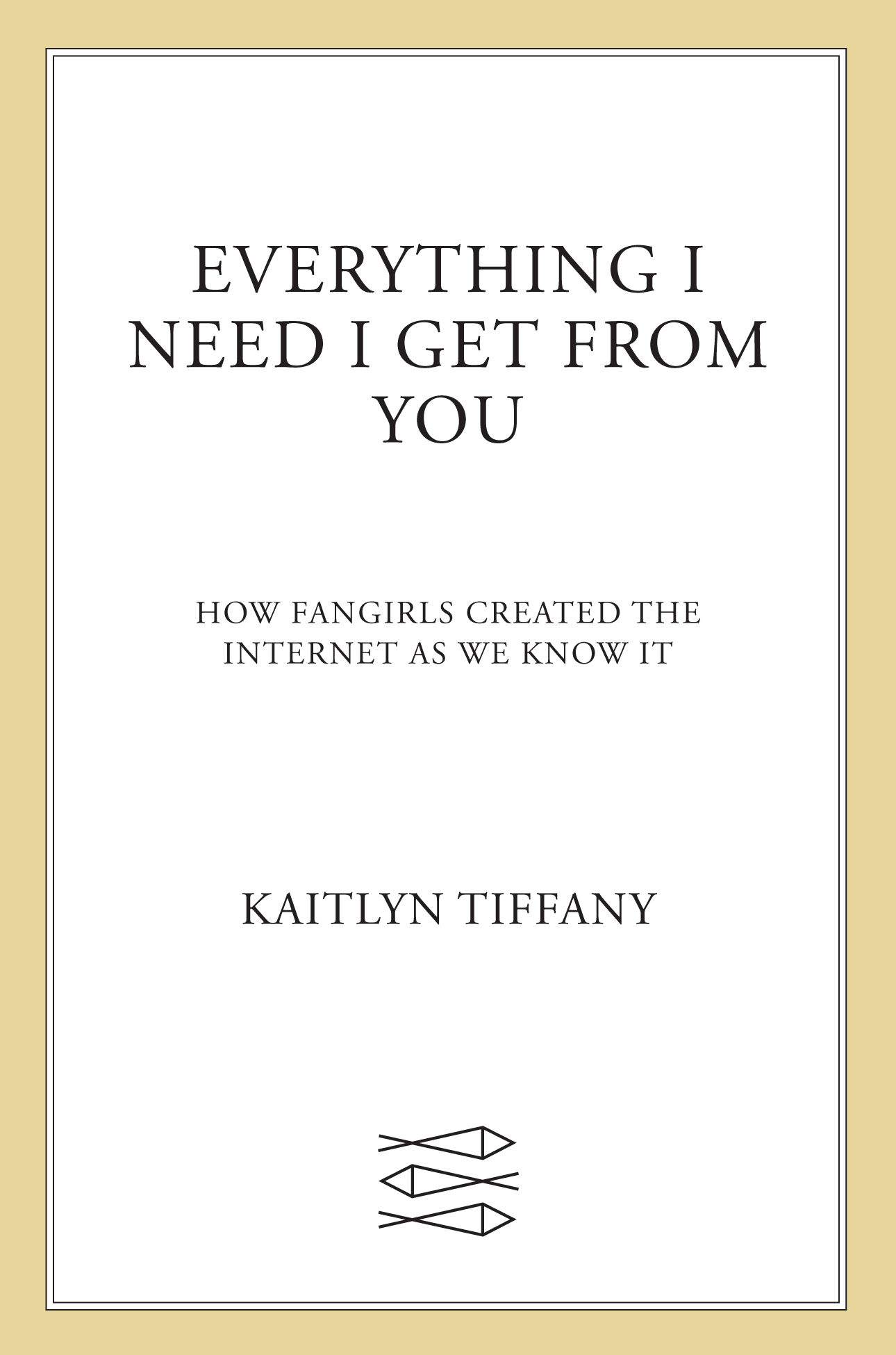

The author and publisher have provided this e-book to you for your personal use only. You may not make this e-book publicly available in any way. Copyright infringement is against the law. If you believe the copy of this e-book you are reading infringes on the authors copyright, please notify the publisher at: us.macmillanusa.com/piracy.
For Sophie
Life will be happier for the on-line individual because the people with whom one interacts most strongly will be selected more by commonality of interests and goals than by accidents of proximity.
J.C.R. LICKLIDER AND ROBERT W. TAYLOR, The Computer as a Communication Device, 1968
if i die tonight tell one direction Ill see them in hell
LISETTE HERNANDEZ, Twitter, 2014
If you can stand it, Im going to describe a six-second video.
It goes like this: the British boy band One Direction is onstage, on tour, in the summer of 2015. You cant actually see themthe camera is too far back in the crowd. You can only kind of see one of them, the then twenty-one-year-old Irish singer and sometime guitar player Niall Horan, bottle-blond in a black T-shirt, blown up on a stadium monitor and washed out into a bright white mess owing to a crappy cell phone camera attempting to record another screen. You can hear a downbeat in a sweet if unremarkable ballad about young love from the bands fourth album, Four, and then you see Horan wringing his hands as he steps to the mic to sing the line We took a chance. It comes out wrong and well never know why. The a is an o. He does not usually do this. He usually sings chance. Odd, but you wouldnt necessarily notice or care if it werent for the fact thatin the tiny space between this phrase and the nextyou then hear another voice, coming from at least several yards behind the camera and begging, credulously, in a molar-crunching scream: What the fuck is a chonce? She must know. She wont. The end.
This video was posted originally on the Twitter-owned short-form video app Vine shortly after the concert, and was adopted as the One Direction fandoms latest and greatest in-joke. It was reblogged and retweeted, the footage was downloaded and reposted. Within a few weeks of the first upload, Harry Styles acknowledged the moment onstage, singing his line of the song as usual, then tossing to Horan for his part, and muttering into the mic, But dont say chonce. At that, the crowd screams as if they have just found out theyre alive. On Tumblr, fans shared this clipwith all-caps ASDFGHJKL and similar expressionsand from then on, there were clips of Horan at subsequent shows, nodding and laughing as tens of thousands of people sing at him, in unison, chonce. Though Vine has since been shuttered, WTF is a chonce persists on YouTube, where the comments years later are one-note: Why do I still find this funny even though Ive seen it millions of times? The joke is not funny, but it is for insiders, and it has a special bittersweetness to it because the original footage was taken just a few months before One Directions final public performance.
The internets ephemera is often better left unexamined, not just because so much of it ends up having a disgusting or depressing backstory, but because so much more of it is impossible to explain at all. One Direction was known for its onstage mishaps and physical accidents, made funnier by their contrast with the bands otherwise meticulously managed and physically grueling stadium tours. There are entire supercuts of Harry Styles falling over in catastrophic fashion, and of sophomoric pranks that involve two or three of the band members ganging up on another. Yet chonce became the single-syllable talisman, clung to even after everything was all over.
Four years after the first clip went viral, I scrolled past a tweet from an account with the handle @isasdfghjkls:
me::(
niall: we took a chonce
me::)
I retweeted it, even though the majority of the people who follow my Twitter account would have no idea what it was referring to. It was a plain statement of factthey could edify themselves if they wanted to live better. We took a chonce is so dumbso pure a joke at the expense of someone who can take one and would love tothe weight of life lifts off of my shoulders when Im reminded of it. Watching this video smacks me with a lingering hit of dopamine, like a gumball-machine-sticky-hand landing on a windowpane. When I need to, I can watch We took a chonce and experience what some people feel when they put their faces in front of a seasonal affective disorder lamp. What a different sort of person feels when they jog. If it so happens that we arrive at a dystopian future in which always-on screens are embedded directly into our retinas, Ill spend every crowded train ride and mandatory all-hands meeting and one-year-olds birthday party washing my eyes with We took a chonce. Thats the only way I can describe what One Direction does for me without saying something as useless as I love them.
Even now, the serendipity of the Tumblr feed leads me to treasures: a watercolor painting of WTF is a chonce? in curling bridesmaid script; a flyer with tear-off strips at the bottom that read Chonceget it? Take one!supposedly hung up by a pair of friends in their local bowling alley. The only problematic thing about my fav is he cant pronounce chance, reads another post reblogged into my feed. Other than that hes a chill little sun drop that loves sports. A commemorative T-shirt cost me a mere $19 plus shipping on EtsyWTF is a chonce? printed in white bubble letters, on pale blue. If youre the type of person who still peruses Urban Dictionary, you might notice that chonce is defined there: An alternative for the word chance. Commonly used by One Directions Niall Horan.
A coldly assembled consumer product, One Direction was an idea that Simon Cowell takes credit for having while serving as a judge on the British reality competition TV show The X Factor in 2010. The five individual boys he met on the show were too bland and young and poorly dressed to make sense on their own, so he pushed them together and made them into a litter of commercially viable puppies. They released their first single in 2011, in the moment that social media was revealing itself as our new shared reality. It was the year teenagers started getting Twitter accounts, which happened just as Tumblr started selling advertising, which was around the same time that Instagram launched and exploded and was acquired by Facebook, while YouTube was cleaning up its design so that young people would have an easier time falling into algorithmic wormholes. One Direction fanswho seemed mostly to be young womenwere mocked for embracing a boy band, an inauthentic thing pieced together for money. They also used, as the means of their expression, a collection of websites that profited off them yet again.
Women are the internet, and the internet is women, the editors of n+1 announced to start their winter issue in 2013.
Any examination of online fandom has to be approached with the same ambivalence. The cultural phenomena of fandom and the internet are braided togetherone cant be fully understood without the other. Both, in providing structure, have also produced chaos. Both, in providing meaning, have sometimes oversupplied it. Yet fans role in shaping our present culture, politics, and social life is often overlooked, and the roots of this oversight go back decades. When listing off pivotal subcultural movements, hardly anyone would think of fangirls. The mid-century sociologists who invented subcultural studies even literally considered rebellion the province of middle- and working-class young men, spending their postwar discretionary income on weird outfits and aggressive haircuts; girlswho at the time were screaming over the Beatles or sitting at home watching soap operas with their mothersdidnt jump out as a compelling subject for study. Or, these activities did not seem subcultural. They looked generic.
Font size:
Interval:
Bookmark:
Similar books «Everything I Need I Get From You: How Fangirls Created the Internet as We Know It»
Look at similar books to Everything I Need I Get From You: How Fangirls Created the Internet as We Know It. We have selected literature similar in name and meaning in the hope of providing readers with more options to find new, interesting, not yet read works.
Discussion, reviews of the book Everything I Need I Get From You: How Fangirls Created the Internet as We Know It and just readers' own opinions. Leave your comments, write what you think about the work, its meaning or the main characters. Specify what exactly you liked and what you didn't like, and why you think so.

